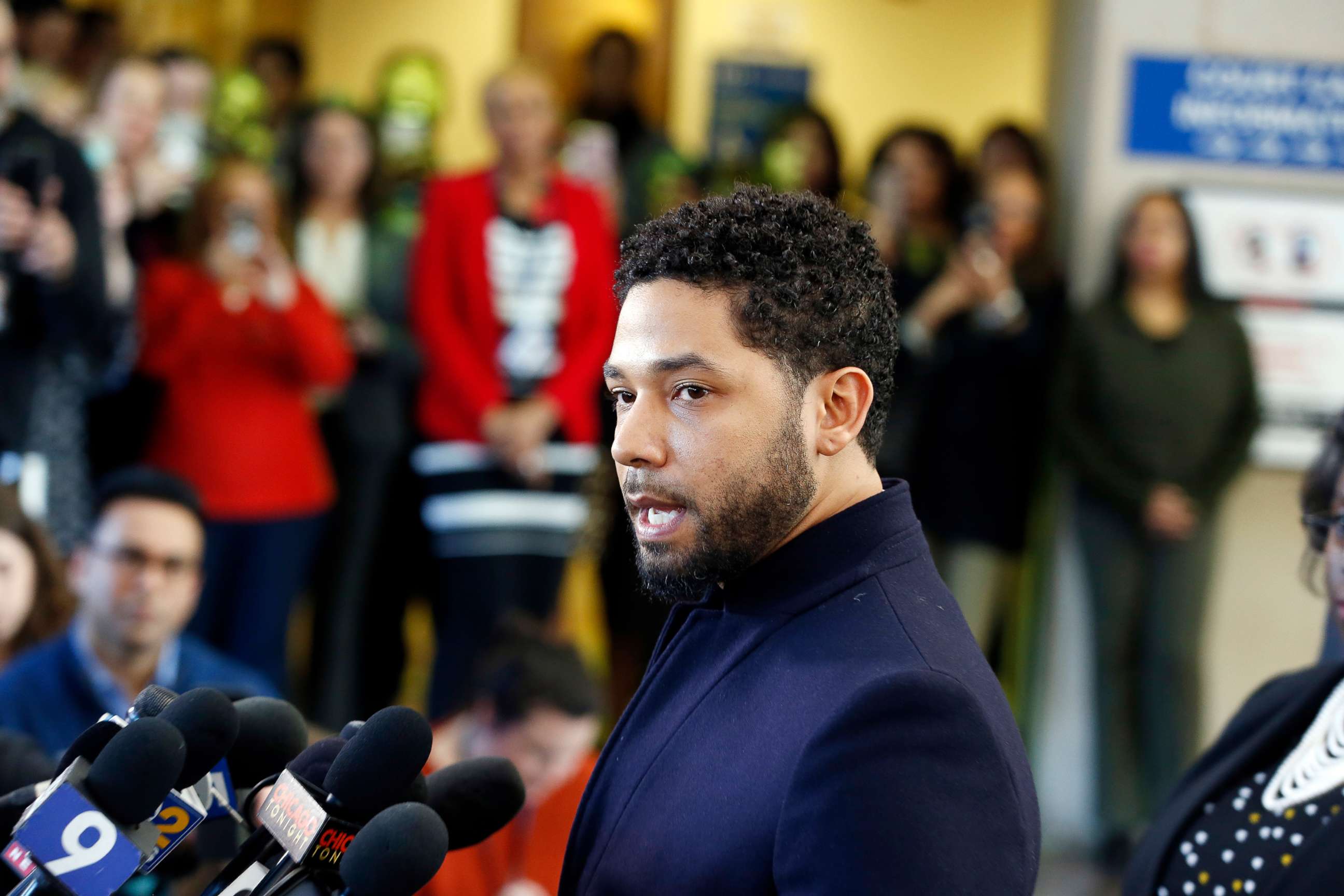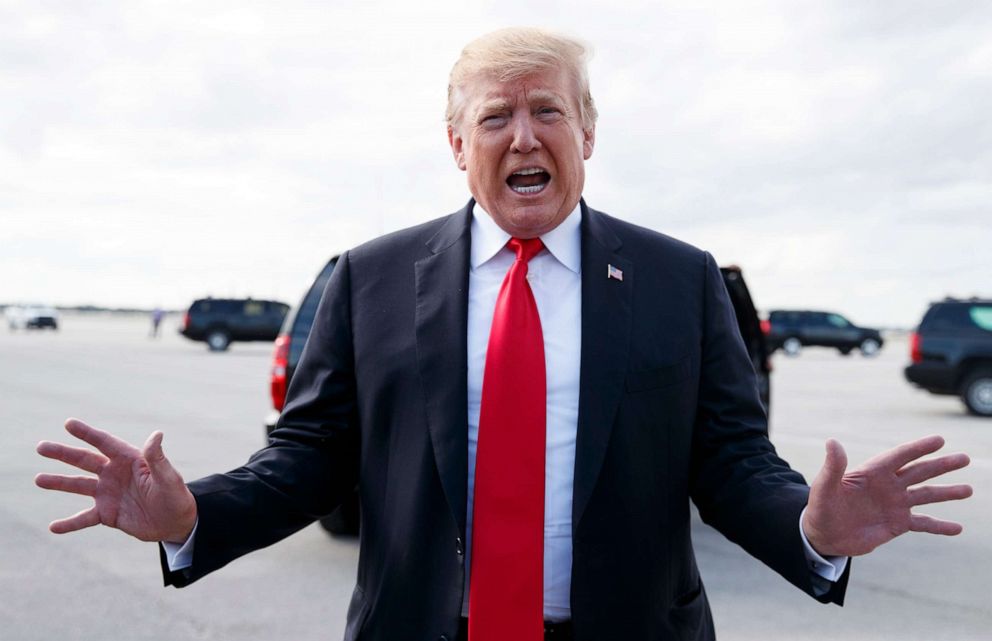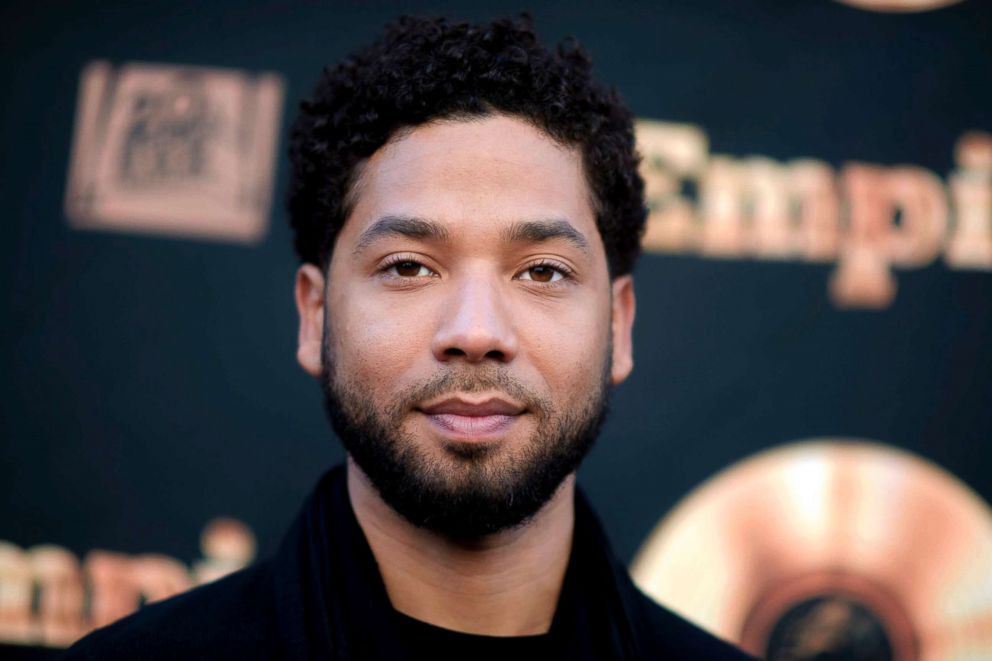Why Donald Trump and Jussie Smollett were not 'exonerated,' according to legal experts
Two high profile cases have people talking about what the term really means.
While the two cases are completely different, the criminal case involving actor Jussie Smollett and the summary of the Mueller report into Russian interference in the 2016 presidential election have raised questions about the definition of the term "exoneration."
Prosecutors announced Tuesday that they dropped all charges against the "Empire" actor despite alleging that Smollett fabricated a street attack on himself, Cook County First Assistant State Attorney Joe Magats said in an interview with ABC Chicago station WLS.
Smollett said after the hearing on Tuesday that he has been "truthful and consistent" throughout the ordeal.
Between the actor’s claim and the dropped charges, Magats addressed the confusion, making it clear during the interview with WLS that "this was not an exoneration."

This new informal use of the word 'exonerated' actually means something different. From a lay person's standpoint, in their minds, they've been cleared, but there's no evidence that they're innocent
Meanwhile, President Donald Trump said Attorney General Bill Barr's summary of Robert Mueller's report, which was released this weekend, was a "complete and total exoneration" of himself, despite that Mueller wrote his report "does not exonerate [Trump]."
"The traditional sense of exonerations was that one had gone through the full criminal justice process, had been convicted, and then evidence was found later to say it was a baseless charge and the person who had been convicted and incarcerated was then set free," Gloria Browne-Marshall, a professor of constitutional law at John Jay College, told ABC News.
In both the Smollett and Trump situations, Browne-Marshall said, the term is being used in a more colloquial way.

"This new informal use of the word 'exonerated' actually means something different. From a lay person's standpoint, in their minds, they've been cleared," Browne-Marshall said. But, she added, there is no ironclad proof of innocence either.
Most news stories that involve exonerations typically refer to cases where a criminal decision is overturned, where -- after, in some cases, decades -- new evidence proves that a person who was found guilty and jailed was actually innocent and, therefore, is being exonerated of the charges against them.
Michael Semanchik, managing attorney at the California Innocence Project, is familiar with such cases, having reviewed hundreds of wrongful conviction claims.
He said that in those cases, "exoneration" means a situation "where somebody's been convicted of a crime, they go to prison, and we get the conviction not only reversed, but charges dismissed," he told ABC News.
"What a lot of people don't know," Semanchik said, "is even when you get a conviction reversed, the charges aren't dismissed: It's a reset back to the day the prosecution filed a complaint against the defendant, and so, for our purposes, an exoneration is when those charges would be dismissed."
Since Trump never had any charges filed against him and Smollett did not go through the full criminal justice process -- including a trial where one conviction is initially rendered and then overturned, vacated -- their situations don't fit the traditional definition of "exonerated."
And in Trump's case, his claim of a "complete and total exoneration," comes in direct contrast to the report summary itself. The report, according to Barr's summary, concluded neither Trump nor his campaign colluded with Russia to interfere with the 2016 election, but it didn't reach a conclusion on claims of potential obstruction of justice.
"While this report does not conclude that the President committed a crime, it also does not exonerate him," Mueller wrote, as quoted by Barr.
While this report does not conclude that the President committed a crime, it also does not exonerate him.
Browne-Marshall thinks Trump's use of the word in the face of Mueller's quote shows that "there continues to be an element of braggadocio mixed with outright storytelling when it comes to Donald Trump."
As for the Smollett case, Semanchik also notes how it differs from many exoneration cases he's handled because -- while the charges were dismissed -- the actor forfeited his $10,000 bond and did two days of community service.

"That's a very strange situation," Semanchik said.
He said that since the actor had to pay and do community service it suggests that "there's possibly some wrongdoing on his part," though Smollett proclaimed that he is innocent, and prosecutors did not present this as a deal of any kind.
"In our cases, typically the charges are dismissed and the client isn't asked to do anything because they didn't do anything in the first place," Semanchik said. "They've done nothing wrong, and so the charges are dismissed without anything on the other side."




